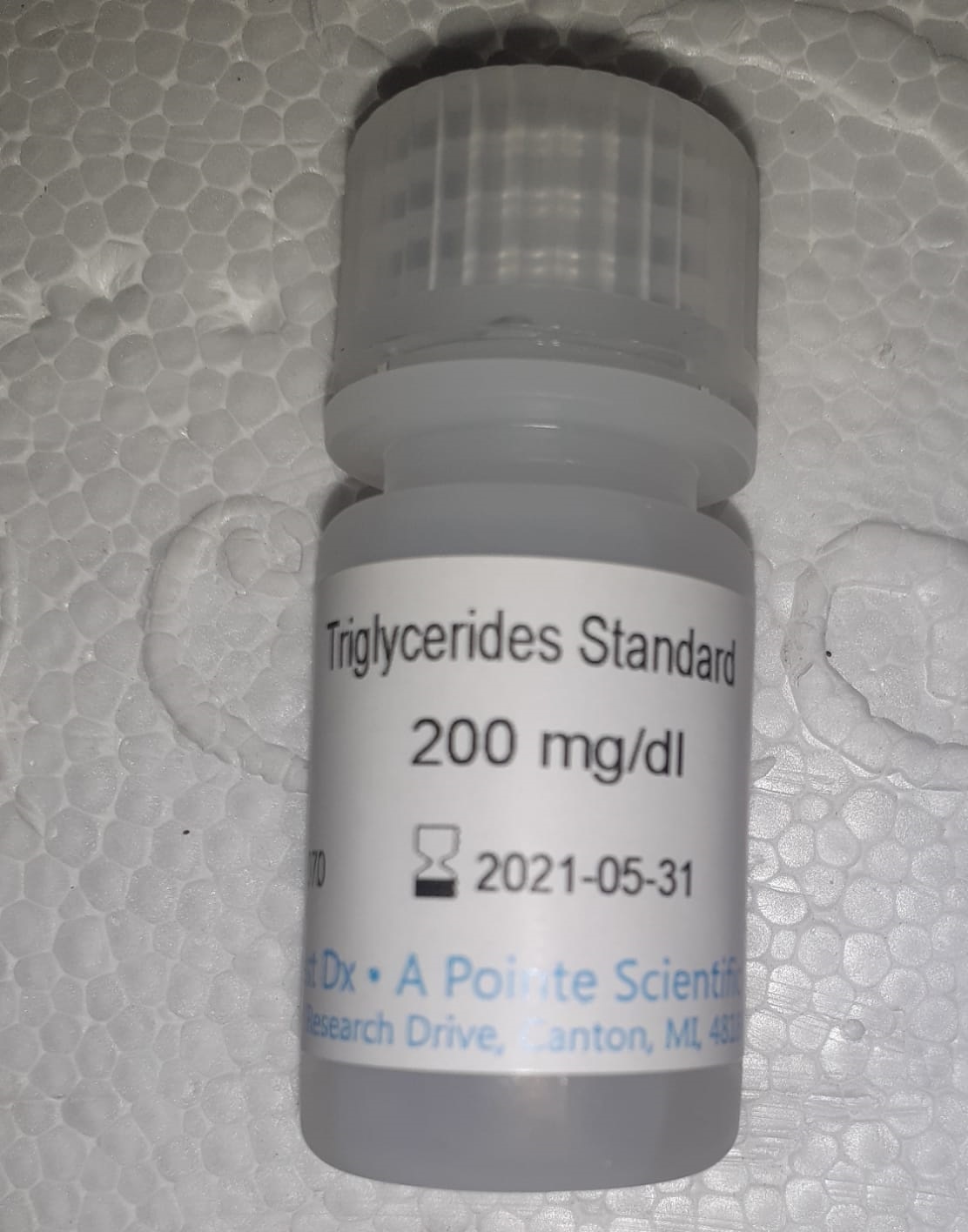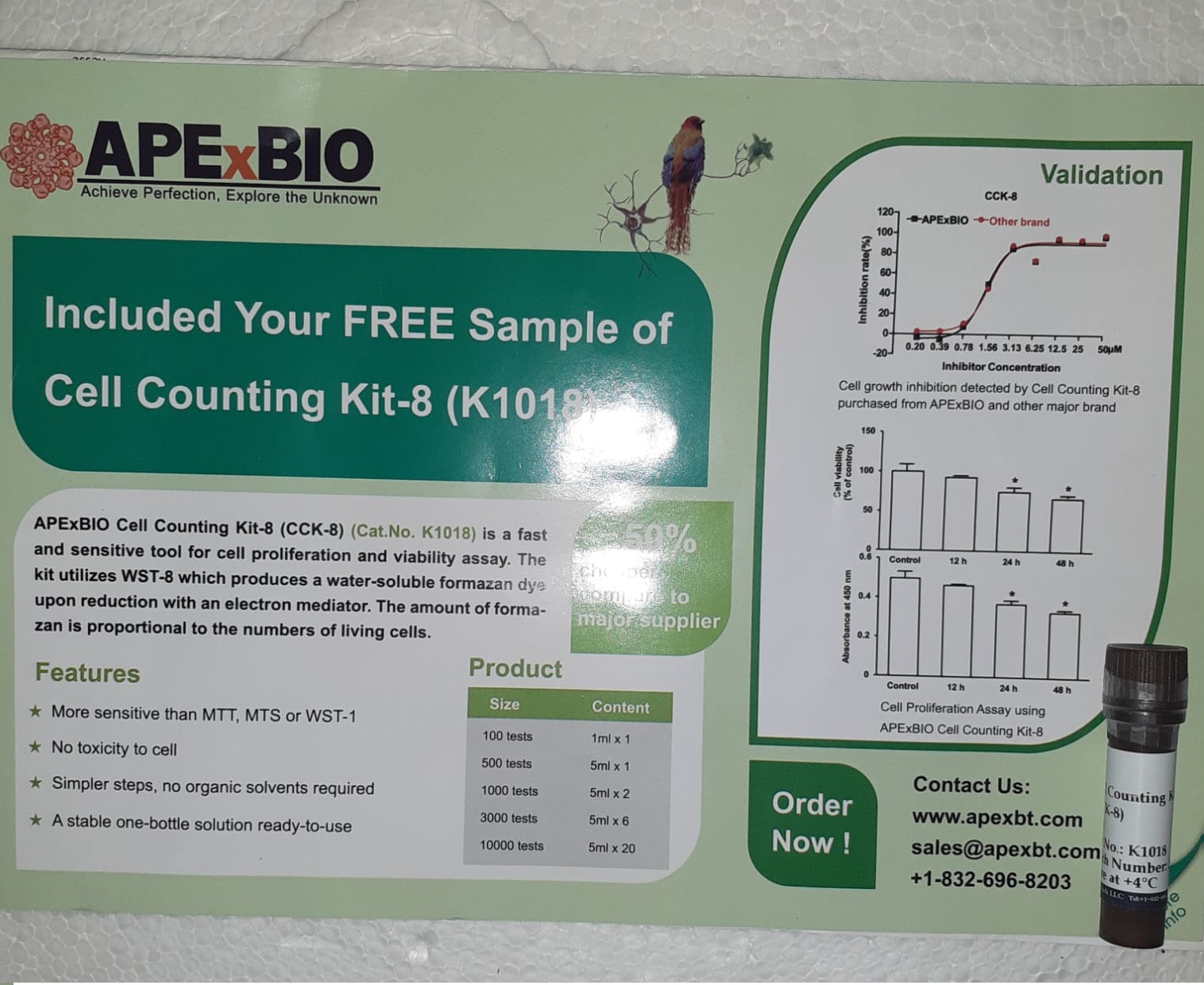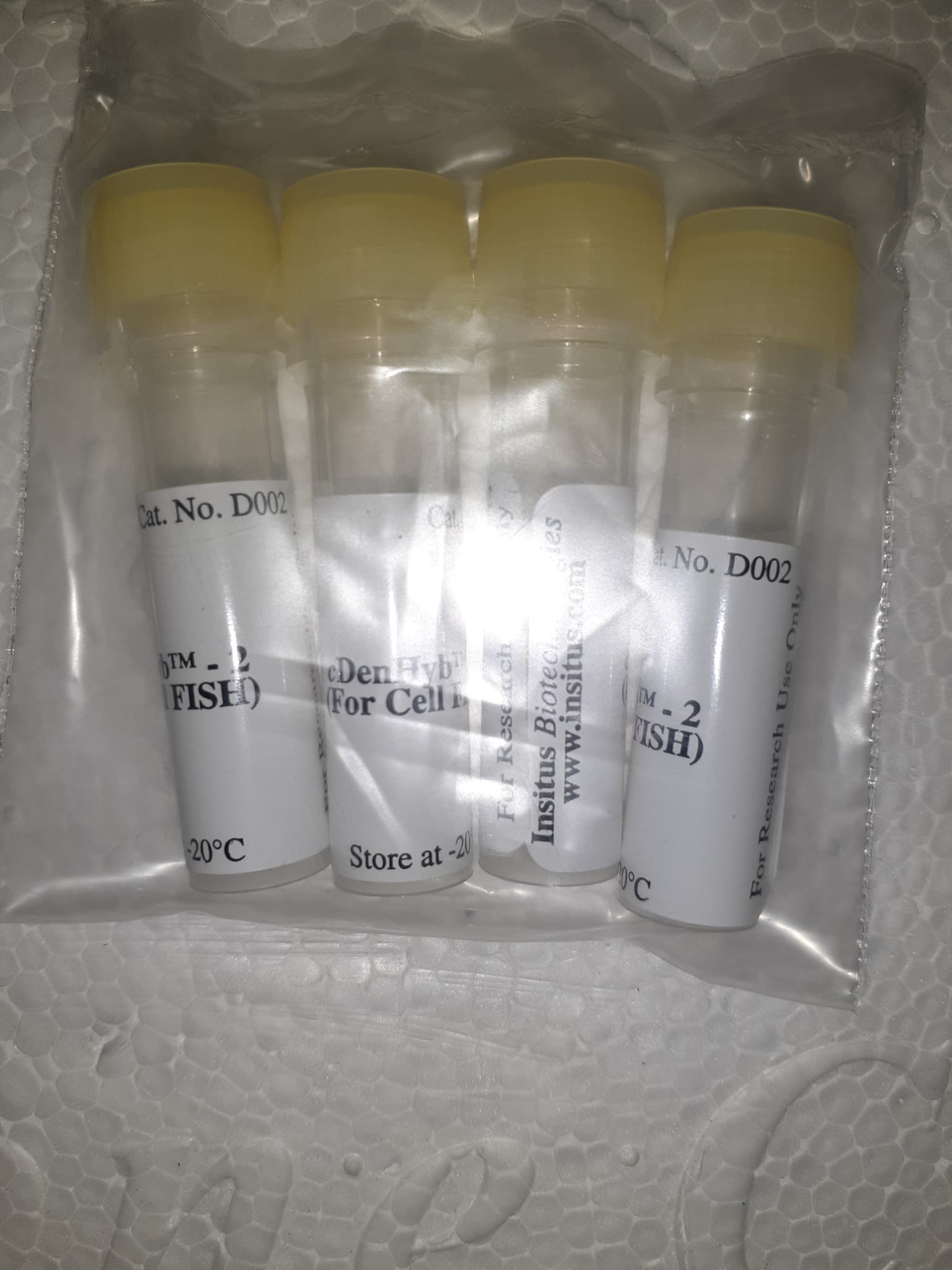
Progress in Gynecologic Cancers with Antibody Drug Conjugates
Objective of evaluate: This text supplies a complete evaluate of antibody-drug conjugates (ADCs) beneath investigation in gynecologic cancers. The construction and performance of ADCs are reviewed with a deal with medical profit in addition to toxicity profiles.
Latest findings: A number of ADCs with varied goal antigens have been investigated in ovarian, cervical, and endometrial most cancers. ADCs have constantly demonstrated favorable security/tolerability profiles each as monotherapy and together remedy. In ovarian most cancers, response charges have ranged from 9 to 46% for monotherapy with response charges as excessive as 83% together remedy. In sufferers with cervical most cancers with progressive illness regardless of doublet remedy and bevacizumab, response charges as excessive as 24% have been noticed. ADCs characterize a quickly evolving area of focused remedy which have demonstrated notable medical profit each as monotherapy but additionally together remedy with an general favorable toxicity profile. With continued refinement of the goal biomarkers utilized, improved medical profit is more likely to be noticed.
Low seroprevalence of SARS-CoV-2 antibodies in a liver transplant cohort
Stable organ transplant recipients would possibly be at larger threat for acquisition and mortality on account of SARS-CoV-2. There isn’t a knowledge concerning SARS-CoV-2 seroprevalence amongst liver transplant (LT) recipients, and whether or not it’s totally different from that of the final inhabitants or different immunosuppressed teams. We evaluated the prevalence of IgG SARS-CoV-2 antibodies amongst LT recipients to estimate the frequency of asymptomatic SARS-CoV-2 an infection utilizing serological assays in our outpatient clinic. We performed a cross-sectional evaluation from Could 10th to October 26th 2020 of all grownup (>18 years) LT recipients that underwent a routine laboratory check for the outpatient clinic follow-up on the Hospital Universitari Vall d’Hebron (Barcelona) during which we included serological testing for SARS-CoV-2. 9 out of 294 LT recipients (3.1%) examined optimistic for anti-SARS-CoV-2 IgG antibodies.
5 of them (55.5%) had suffered clinically symptomatic SARS-CoV2 an infection confirmed by RT-PCR, 4 (44.4%) had offered suitable signs however with out microbiological affirmation and just one affected person (1/9, 11.1%) examined optimistic with none earlier symptom. SARS-CoV-2 seroprevalence amongst LT recipients in an space extremely affected by the pandemic is decrease than within the basic inhabitants in the identical space. These outcomes render the potential of asymptomatic an infection in LT recipients not possible.
Novel antibody cocktail concentrating on Guess v 1 quickly and sustainably treats birch allergy signs in a Part 1 examine
Background: The efficacy of an allergen-specific IgG cocktail to deal with cat allergy means that allergen-specific IgG could also be a significant protecting mechanism elicited by allergen immunotherapy.
Goal: Extending these findings, we examined a Guess v 1-specific antibody cocktail in birch-allergic topics.
Strategies: Part 1, randomized, double-blind, examine: Half-A, ascending doses of Guess v 1-specific antibody cocktail “REGN5713/14/15” (150-900 mg) in 32 wholesome adults; Half-B, single subcutaneous 900 mg dose or placebo in 64 birch-allergic topics. Complete nasal symptom rating (TNSS) response to titrated birch extract nasal allergen problem (NAC) and pores and skin prick check (SPT) with birch and alder allergen have been assessed at screening and days 8, 29, 57 and 113 (SPT solely); basophil activation checks (n=26) have been performed.
Outcomes: Single dose REGN5713/14/15 considerably diminished TNSS following birch NAC relative to baseline. Variations in TNSS AUC(0-1 hr) versus placebo (day 8: -1.17, P = .001; day 29: -1.18, P = .001; day 57: -0.85, P = .024) and titration SPT with birch distinction in AUC of imply wheal diameters versus placebo (all P < .001) have been sustained for ≥2 months; comparable outcomes noticed with alder SPT. REGN5713/14/15 was well-tolerated. Basophil responsiveness to birch-related allergens was considerably decreased in REGN5713/14/15-treated topics versus placebo on days 8, 57, and 113 (all P < .01).
Conclusion: Single dose REGN5713/14/15 was effectively tolerated and offered a speedy (1 week) and sturdy (2 months) discount in allergic signs after birch allergen NAC, probably providing a brand new paradigm for the remedy of birch allergy signs.
Transfusion-induced platelet antibodies and regulatory T cells in multiply transfused sufferers
Background: Platelet transfusion refractoriness (PTR) stays a tough drawback in sufferers requiring long-term platelet supportive care. Nonetheless, there are little knowledge on the frequency of platelet antibodies in multiply transfused Chinese language sufferers. Furthermore, the connection between peripheral regulatory T cells (Tregs) and PTR stays unclear.
Strategies: We retrospectively studied the frequency of alloimmunization towards platelet antigens in sufferers receiving a number of transfusions between 2013 and 2017. Monoclonal antibody solid-phase platelet antibody check (MASPAT) kits have been used to display screen for platelet antibodies earlier than every platelet transfusion. Peripheral Tregs and CD4+ CD25+ CD127– T cells have been detected by circulate cytometry, whereas reworking progress factor-beta (TGF-β) and interleukin (IL)-17 cytokines have been detected by enzyme-linked immunosorbent assay.
Outcomes: A complete of 399 sufferers who met the inclusion standards have been enrolled for the evaluation of platelet antibodies and refractoriness. Amongst these sufferers, 10 (2.5%) have been optimistic for platelet antibodies earlier than transfusion and 47 (11.8%) grew to become antibody-positive throughout the examine interval. The variety of alloimmunized sufferers was considerably greater in sufferers with hematological illness as in contrast with different illness teams (p < 0.05). Refractoriness and alloimmunization occurred in 77 (19.3%) and 22 (28.6%) sufferers, respectively. There have been no vital variations in CD4+ , CD8+ , and CD4+ CD25+ CD127– T cell numbers and plasma ranges of TGF-β1 and IL-17 between sufferers with PTR and the management group.
Conclusions: Refractoriness was frequent in sufferers present process a number of platelet transfusions (19.3%), with alloimmunization noticed in 28.6% of sufferers. Nonetheless, Tregs in peripheral blood might not play a key position in PTR.
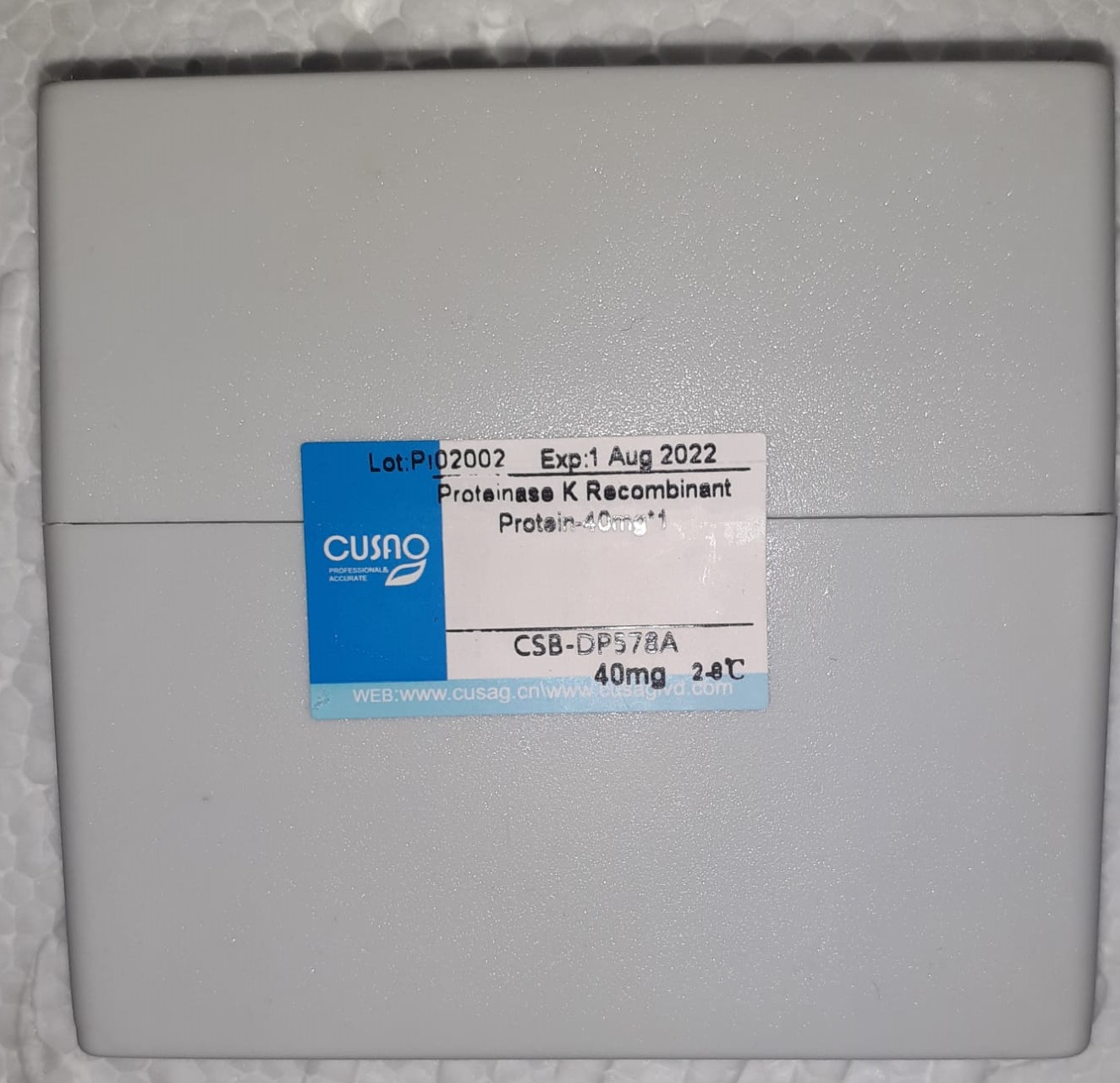
Younger infants exhibit strong purposeful antibody responses and restrained IFN-γ manufacturing to SARS-CoV-2
Extreme COVID-19 seems uncommon in kids. That is surprising, particularly in younger infants, who’re susceptible to extreme illness attributable to different respiratory viruses. We consider convalescent immune responses in 4 infants beneath 3 months previous with confirmed COVID-19 who offered with delicate febrile sickness, alongside their dad and mom, and grownup controls recovered from confirmed COVID-19.
Though not statistically vital, in comparison with seropositive adults, infants have excessive serum ranges of IgG and IgA to SARS-CoV-2 spike protein with corresponding purposeful skill to dam SARS-CoV-2 mobile entry. Infants additionally exhibit strong saliva anti-spike IgG and IgA responses. Spike-specific IFN-γ manufacturing by toddler peripheral blood mononuclear cells seems restrained, however the frequency of spike-specific IFN-γ and/or TNF-ɑ producing T cells is comparable between infants and adults. On principal part evaluation, toddler immune responses seem distinct from their dad and mom. Sturdy purposeful antibody responses alongside restrained IFN-γ manufacturing might assist defend infants from extreme COVID-19.
Salivary IgA antibody to malondialdehyde-acetaldehyde associates with delicate periodontal pocket depth
Goal: Oxidized epitopes reminiscent of malondialdehyde-acetaldehyde (MAA) play an important position within the development of atherosclerosis by way of activation of the humoral immune response. The precise mechanism of the affiliation between atherosclerosis and periodontal illnesses shouldn’t be totally understood. The purpose of the present examine is to judge the affiliation of oral humoral immune response to oxidized epitopes with parameters of periodontal illness.
Supplies and strategies: The Parogene cohort encompass sufferers who’ve undergone coronary angiography on account of cardiac signs. On this examine, 423 sufferers have been randomly chosen for an in depth oral examination. Salivary Immunoglobulin A to oxidized epitopes and bacterial antigens was decided by chemiluminescence immunoassay.
Outcomes: In a binary logistic regression mannequin adjusted with periodontal illness confounders, periodontal pocket depth (PPD) 4-5 mm related to salivary IgA antibodies to MAA-LDL (p = 0.034), warmth shock protein 60 of Aggregatibacter actinomycetemcomitans (p = 0.045), Porphyromonas gingivalis (p = 0.045), A. actinomycetemcomitans (p = 0.005), P. intermedia (p = 0.020), and complete IgA (p = 0.003).
Conclusions: The present examine reveals the affiliation of salivary IgA to MAA-LDL with PPD 4-5 mm in a cohort of sufferers with continual coronary artery illness. Humoral immune cross-reactivation to oxidized epitopes such MAA-LDL may partly clarify the hyperlink of periodontitis with systemic illnesses.
 LIF,Mouse | |||
| E34M066M | EnoGene | 5 μg | EUR 155 |
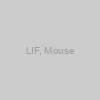 LIF, Mouse | |||
| MBS8575391-0005mg | MyBiosource | 0.005mg | EUR 245 |
 LIF, Mouse | |||
| MBS8575391-5x0005mg | MyBiosource | 5x0.005mg | EUR 940 |
 LIF, mouse | |||
| MO16102 | Neuromics | 100 ug | EUR 494.1 |
 Mouse Anti-Human LIF Monoclonal Antibody | |||
| MBS592457-01mg | MyBiosource | 0.1mg | EUR 365 |
 Mouse Anti-Human LIF Monoclonal Antibody | |||
| MBS592457-05mg | MyBiosource | 0.5mg | EUR 530 |
 Mouse Anti-Human LIF Monoclonal Antibody | |||
| MBS592457-5x05mg | MyBiosource | 5x0.5mg | EUR 2140 |
 Mouse Anti-Human LIF Monoclonal Antibody | |||
| MBS592458-01mg | MyBiosource | 0.1mg | EUR 365 |
 Mouse Anti-Human LIF Monoclonal Antibody | |||
| MBS592458-05mg | MyBiosource | 0.5mg | EUR 530 |
 Mouse Anti-Human LIF Monoclonal Antibody | |||
| MBS592458-5x05mg | MyBiosource | 5x0.5mg | EUR 2140 |
 Mouse Anti-Human LIF Monoclonal Antibody | |||
| MBS592459-01mg | MyBiosource | 0.1mg | EUR 365 |
 Mouse Anti-Human LIF Monoclonal Antibody | |||
| MBS592459-05mg | MyBiosource | 0.5mg | EUR 530 |
 Mouse Anti-Human LIF Monoclonal Antibody | |||
| MBS592459-5x05mg | MyBiosource | 5x0.5mg | EUR 2140 |
 Mouse LIF siRNA | |||
| 20-abx922546 | Abbexa |
|
|
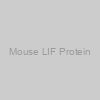 Mouse LIF Protein | |||
| E2PD201245 | EnoGene | 20ug | EUR 595 |
 Mouse LIF Protein | |||
| E40MOP1672 | EnoGene | 20ug | EUR 495 |
 Mouse LIF Protein | |||
| E40MOP2026 | EnoGene | 20ug | EUR 495 |
 Mouse LIF Protein | |||
| E40MOP2028 | EnoGene | 20ug | EUR 495 |
 LIF, Mouse, Monoclonal Antibody, Mouse | |||
| MBS555093-01mg | MyBiosource | 0.1mg | EUR 745 |
 LIF, Mouse, Monoclonal Antibody, Mouse | |||
| MBS555093-5x01mg | MyBiosource | 5x0.1mg | EUR 3210 |
) LIF siRNA (Mouse) | |||
| MBS8224619-15nmol | MyBiosource | 15nmol | EUR 405 |
) LIF siRNA (Mouse) | |||
| MBS8224619-30nmol | MyBiosource | 30nmol | EUR 565 |
) LIF siRNA (Mouse) | |||
| MBS8224619-5x30nmol | MyBiosource | 5x30nmol | EUR 2450 |
 Recombinant Mouse LIF | |||
| MBS4159936-001mg | MyBiosource | 0.01mg | EUR 230 |
 Recombinant Mouse LIF | |||
| MBS4159936-01mg | MyBiosource | 0.1mg | EUR 560 |
 Recombinant Mouse LIF | |||
| MBS4159936-1mg | MyBiosource | 1mg | EUR 1500 |
 Recombinant Mouse LIF | |||
| MBS4159936-5x1mg | MyBiosource | 5x1mg | EUR 6500 |
 Recombinant Mouse LIF | |||
| MBS7609292-005mg | MyBiosource | 0.05mg | EUR 405 |
 Recombinant Mouse LIF | |||
| MBS7609292-02mg | MyBiosource | 0.2mg | EUR 760 |
 Recombinant Mouse LIF | |||
| MBS7609292-1mg | MyBiosource | 1mg | EUR 2175 |
 Recombinant Mouse LIF | |||
| MBS7609292-5x1mg | MyBiosource | 5x1mg | EUR 8410 |
 Recombinant Mouse LIF | |||
| P1174-.005 | ApexBio | 5ug | EUR 108.8 |
Description: Peptides & Proteins|Recombinant Proteins | |||
 Recombinant Mouse LIF | |||
| P1174-.1 | ApexBio | 100ug | EUR 840.8 |
Description: Peptides & Proteins|Recombinant Proteins | |||
 Recombinant Mouse LIF | |||
| P1174-.5 | ApexBio | 500ug | EUR 1885.6 |
Description: Peptides & Proteins|Recombinant Proteins | |||
 Recombinant Mouse LIF | |||
| Z200195 | ABM | 10 µg | EUR 85 |
Description: LIF is a multifunctional secreted glycoprotein that exists in both soluble and matrix-bound forms. It displays biologic activities ranging from the differentiation of myeloid leukemic cells into macrophage lineage to effects on bone metabolism, inflammation, neural development, embryogenesis, and the maintenance of implantation. It is now clear that LIF is related in both structure and mechanism of action to the interleukin IL-6 family of cytokines, which also includes IL-11, ciliary neurotrophic factor, oncostatin M, and cardiotrophin 1. The actions of these cytokines are mediated through specific cell-surface receptors that consist of a unique chain and the shared signal transducing subunit gp130. | |||
 Recombinant Mouse LIF | |||
| Z200197 | ABM | 100 µg | EUR 385 |
Description: LIF is a multifunctional secreted glycoprotein that exists in both soluble and matrix-bound forms. It displays biologic activities ranging from the differentiation of myeloid leukemic cells into macrophage lineage to effects on bone metabolism, inflammation, neural development, embryogenesis, and the maintenance of implantation. It is now clear that LIF is related in both structure and mechanism of action to the interleukin IL-6 family of cytokines, which also includes IL-11, ciliary neurotrophic factor, oncostatin M, and cardiotrophin 1. The actions of these cytokines are mediated through specific cell-surface receptors that consist of a unique chain and the shared signal transducing subunit gp130. | |||
 Recombinant Mouse LIF | |||
| Z200199 | ABM | 1.0 mg | EUR 1200 |
Description: LIF is a multifunctional secreted glycoprotein that exists in both soluble and matrix-bound forms. It displays biologic activities ranging from the differentiation of myeloid leukemic cells into macrophage lineage to effects on bone metabolism, inflammation, neural development, embryogenesis, and the maintenance of implantation (2). It is now clear that LIF is related in both structure and mechanism of action to the interleukin IL-6 family of cytokines, which also includes IL-11, ciliary neurotrophic factor, oncostatin M, and cardiotrophin 1 (2). The actions of these cytokines are mediated through specific cell-surface receptors that consist of a unique chain and the shared signal transducing subunit gp130. | |||
 Recombinant Mouse LIF | |||
| Z200485 | ABM | 100 µg | EUR 1500 |
Description: LIF is a multifunctional secreted glycoprotein that exists in both soluble and matrix-bound forms. It displays biologic activities ranging from the differentiation of myeloid leukemic cells into macrophage lineage to effects on bone metabolism, inflammation, neural development, embryogenesis, and the maintenance of implantation (2). It is now clear that LIF is related in both structure and mechanism of action to the interleukin IL-6 family of cytokines, which also includes IL-11, ciliary neurotrophic factor, oncostatin M, and cardiotrophin 1 (2). The actions of these cytokines are mediated through specific cell-surface receptors that consist of a unique chain and the shared signal transducing subunit gp130. | |||
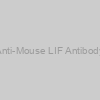 Anti-Mouse LIF Antibody | |||
| 103-M263 | ReliaTech | 100 µg | EUR 399 |
Description: Based on its helical structure, LIF (Leukemia Inhibitory Factor) is considered a member of the Interleukin-6 family of cytokines. Functionally, it has been implicated in a many physiological processes including development, hematopoiesis, bone metabolism, and inflammation. Some cell types known to express LIF include activated T cells, monocytes, astrocytes, osteoblasts, keratinocytes, regenerating skeletal muscle, mast cells, and fibroblasts. | |||
 Anti-Mouse LIF Antibody | |||
| 103-PA05S | ReliaTech | 100 µg | EUR 126 |
Description: Leukemia Inhibitory Factor also called LIF is a lymphoid factor that promotes long-term maintenance of embryonic stem cells by suppressing spontaneous differentiation. Leukemia Inhibitory Factor has several functions such as cholinergic neuron differentiation, control of stem cell pluripotency, bone & fat metabolism, mitogenesis of factor dependent cell lines & promotion of megakaryocyte production in vivo. Human and mouse LIF exhibit a 78% identity in its amino acid sequence. Human LIF is as active on human cells as is it is on mouse cells, though mouse LIF is about 1000 fold less active on human cells, than human LIF. | |||
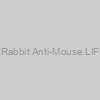 Rabbit Anti-Mouse LIF | |||
| 103-PA05 | Angio Proteomie | 100ug | EUR 240 |
, (recombinant)) LIF (mouse), (recombinant) | |||
| MBS566073-1mL | MyBiosource | 1mL | EUR 1470 |
, (recombinant)) LIF (mouse), (recombinant) | |||
| MBS566073-5x1mL | MyBiosource | 5x1mL | EUR 6555 |
 Anti-LIF Mouse mAb | |||
| GB121477 | Wuhan Servicebio Technology | 100 μL | EUR 100 |
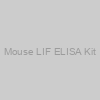 Mouse LIF ELISA Kit | |||
| EML0014 | Abclonal | 96Tests | EUR 625.2 |
 Mouse LIF ELISA Kit | |||
| EK5250 | SAB | 96 tests | EUR 599 |
 Mouse LIF ELISA Kit | |||
| E28L0650 | EnoGene | 96T | EUR 666.67 |
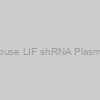 Mouse LIF shRNA Plasmid | |||
| 20-abx971321 | Abbexa |
|
|
 Mouse Recombinant Protein) Lif (NM_008501) Mouse Recombinant Protein | |||
| E45M42302E0 | EnoGene | 20 ug | EUR 1088.75 |
 Mouse Recombinant Protein) Lif (NM_008501) Mouse Recombinant Protein | |||
| E45M43185M5 | EnoGene | 20 ug | EUR 1924.54 |
 LIF, Human, Monoclonal Antibody, Mouse | |||
| MBS555094-01mg | MyBiosource | 0.1mg | EUR 745 |
 LIF, Human, Monoclonal Antibody, Mouse | |||
| MBS555094-5x01mg | MyBiosource | 5x0.1mg | EUR 3210 |
 Recombinant Mouse LIF protein | |||
| CD00323-5ug | Jiaxing Korain Biotech Ltd (BT Labs) | 5ug | EUR 176 |
Description: Leukemia inhibitory factor (LIF) is a member of Interleukin 6 family. This protein is mainly expressed in the trophectoderm of the developing embryo, with its receptor LIFR expressed throughout the inner cell mass. LIF has the capacity to induce terminal differentiation in leukemic cells. Its activities include the induction of hematopoietic differentiation in normal and myeloid leukemia cells, the induction of neuronal cell differentiation, and the stimulation of acute-phase protein synthesis in hepatocytes. LIF is used in mouse embryonic stem cell culture, because that removal of LIF pushes stem cells toward differentiation, but they retain their proliferative potential or pluripotency. It is also used in phase II clinical trial, which can assist embryo implantation in women who have failed to become pregnant despite assisted reproductive technologies (ART). Mature mouse LIF shares 78 % a.a. sequence identity with Human LIF. | |||
 Recombinant Mouse LIF protein | |||
| IMP-1308 | Creative BioMart | 10µg | EUR 360 |
Description: Recombinant Proteins | |||
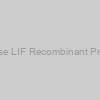 Mouse LIF Recombinant Protein | |||
| M30-007 | ReliaTech | 10 µg | EUR 99.75 |
Description: Leukemia Inhibitory Factor also called LIF is a lymphoid factor that promotes long-term maintenance of embryonic stem cells by suppressing spontaneous differentiation. Leukemia Inhibitory Factor has several functions such as cholinergic neuron differentiation, control of stem cell pluripotency, bone & fat metabolism, mitogenesis of factor dependent cell lines & promotion of megakaryocyte production in vivo. Human and mouse LIF exhibit a 78% identity in its amino acid sequence. Human LIF is as active on human cells as is it is on mouse cells, though mouse LIF is about 1000 fold less active on human cells, than human LIF. Recombinant mouse LIF produced in E. coli is a single, non-glycosylated, polypeptide chain containing 180 amino acids and having a molecular mass of 19.86 kDa. | |||
 Mouse LIF Recombinant Protein | |||
| M30-008 | ReliaTech | 50 µg | EUR 246.75 |
Description: Leukemia Inhibitory Factor also called LIF is a lymphoid factor that promotes long-term maintenance of embryonic stem cells by suppressing spontaneous differentiation. Leukemia Inhibitory Factor has several functions such as cholinergic neuron differentiation, control of stem cell pluripotency, bone & fat metabolism, mitogenesis of factor dependent cell lines & promotion of megakaryocyte production in vivo. Human and mouse LIF exhibit a 78% identity in its amino acid sequence. Human LIF is as active on human cells as is it is on mouse cells, though mouse LIF is about 1000 fold less active on human cells, than human LIF. Recombinant mouse LIF produced in E. coli is a single, non-glycosylated, polypeptide chain containing 180 amino acids and having a molecular mass of 19.86 kDa. | |||
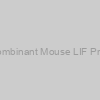 Recombinant Mouse LIF Protein | |||
| MBS1751002-01mg | MyBiosource | 0.1mg | EUR 315 |
 Recombinant Mouse LIF Protein | |||
| MBS1751002-5x01mg | MyBiosource | 5x0.1mg | EUR 1270 |
 Recombinant Mouse LIF Protein | |||
| MBS8249390-001mg | MyBiosource | 0.01mg | EUR 230 |
 Recombinant Mouse LIF Protein | |||
| MBS8249390-005mg | MyBiosource | 0.05mg | EUR 480 |
 Recombinant Mouse LIF Protein | |||
| MBS8249390-05mg | MyBiosource | 0.5mg | EUR 2825 |
 Recombinant Mouse LIF Protein | |||
| MBS8249390-5x05mg | MyBiosource | 5x0.5mg | EUR 12640 |
 Recombinant Mouse LIF Protein | |||
| PKSM041100-100ug | Elabscience Biotech | 100ug | EUR 739 |
Description: Mouse | |||
 Recombinant Mouse LIF Protein | |||
| PKSM041100-20ug | Elabscience Biotech | 20ug | EUR 249 |
Description: Mouse | |||
 Recombinant Mouse LIF Protein | |||
| R01400-1 | BosterBio | 100ug/vial | EUR 240 |
Description: SPLPI TPVNA TCAIR HPCHG NLMNQ IKNQL AQLNG SANAL FISYY TAQGE PFPNN VEKLC APNMT DFPSF HGNGT EKTKL VELYR MVAYL SASLT NITRD QKVLN PTAVS LQVKL NATID VMRGL LSNVL CRLCN KYRVG HVDVP PVPDH SDKEA FQRKK LGCQL LGTYK QVISV VVQAF | |||
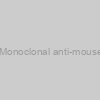 Rat Monoclonal anti-mouse LIF | |||
| mAP-0122 | Angio Proteomie | 100ug | EUR 250 |
 LIF Protein, Mouse, Recombinant | |||
| E45M52739M0-20-ug | EnoGene | 20 ug | EUR 291.15 |
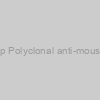 Sheep Polyclonal anti-mouse LIF | |||
| mAP-5260 | Angio Proteomie | 50ug | EUR 400 |
 Anti-LIF Antibody, Mouse Monoclonal | |||
| MBS8107490-01mL | MyBiosource | 0.1mL | EUR 300 |
 Anti-LIF Antibody, Mouse Monoclonal | |||
| MBS8107490-5x01mL | MyBiosource | 5x0.1mL | EUR 1200 |
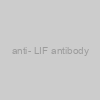 anti- LIF antibody | |||
| FNab09804 | FN Test | 100µg | EUR 658.5 |
Description: Antibody raised against LIF | |||
 anti- LIF antibody | |||
| LSMab09804 | Lifescience Market | 100 ug | EUR 463.2 |
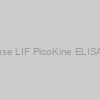 Mouse LIF PicoKine ELISA Kit | |||
| MBS178717-5x96StripWells | MyBiosource | 5x96-Strip-Wells | EUR 2755 |
 Mouse LIF PicoKine ELISA Kit | |||
| MBS178717-96StripWells | MyBiosource | 96-Strip-Wells | EUR 600 |
 Recombinant Mouse LIF, Tag Free | |||
| PM2019-.01 | ApexBio | 10ug | EUR 208 |
Description: Peptides & Proteins|Recombinant Proteins | |||
 Recombinant Mouse LIF, Tag Free | |||
| PM2019-.1 | ApexBio | 10X10ug | EUR 784 |
Description: Peptides & Proteins|Recombinant Proteins | |||
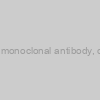 LIF mouse monoclonal antibody, clone 4F7.2 | |||
| MO16101-100 | Origene Technologies GmbH | 100 µg | Ask for price |
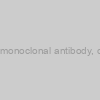 LIF mouse monoclonal antibody, clone 2H2.2 | |||
| MO16102-100 | Origene Technologies GmbH | 100 µg | Ask for price |
 (pORF)) Lif ORF Vector (Mouse) (pORF) | |||
| ORF049145 | ABM | 1.0 ug DNA | EUR 607.2 |
 (pORF)) Lif ORF Vector (Mouse) (pORF) | |||
| ORF049146 | ABM | 1.0 ug DNA | EUR 607.2 |
 LIF, Mouse Recombinant , 1MIU/ml | |||
| L4500-001 | GenDepot | 1ml | EUR 235 |
 LIF, Mouse Recombinant , 1MIU/ml | |||
| L4500-005 | GenDepot | 5x1ml | EUR 890 |
 (OKBB00760)) LIF ELISA Kit (Mouse) (OKBB00760) | |||
| OKBB00760 | Aviva Systems Biology | 96 Wells | EUR 606 |
Description: Description of target: Leukemia inhibitory factor, or LIF, is an interleukin 6 class cytokine that affects cell growth by inhibiting differentiation. When LIF levels drop, the cells differentiate. The LIF was mapped gene to 22q11-q12.2 by Southern analysis of a series of mouse/human somatic cell hybrids and by in situ hybridization to the chromosomes of 2 normal males and some individuals with chromosomal rearrangements. The gene maps between the Philadelphia translocation BCR1 and the breakpoint of the translocation in cell line GM2324 at 22q12.2. LIF derives its name from its ability to induce the terminal differentiation of myeloid leukemic cells, thus preventing their continued growth. Other properties attributed to the cytokine include: the growth promotion and cell differentiation of different types of target cells, influence on bone metabolism, cachexia, neural development, embryogenesis and inflammation.;Species reactivity: Mouse;Application: ELISA;Assay info: ;Sensitivity: <10pg/ml | |||
 (OKEH04045)) LIF ELISA Kit (Mouse) (OKEH04045) | |||
| OKEH04045 | Aviva Systems Biology | 96 Wells | EUR 652.8 |
Description: Description of target: LIF has the capacity to induce terminal differentiation in leukemic cells. Its activities include the induction of hematopoietic differentiation in normal and myeloid leukemia cells, the induction of neuronal cell differentiation, and the stimulation of acute-phase protein synthesis in hepatocytes.;Species reactivity: Mouse;Application: ;Assay info: Assay Methodology: Quantitative Sandwich ELISA;Sensitivity: 0.039 ng/mL | |||
 LIF, Mouse Recombinant , 10MIU/ml | |||
| L4501-001 | GenDepot | 1ml | EUR 1100 |
 Purified recombinant Mouse LIF protein | |||
| MBS5308803-001mg | MyBiosource | 0.01mg | EUR 550 |
 Purified recombinant Mouse LIF protein | |||
| MBS5308803-5x001mg | MyBiosource | 5x0.01mg | EUR 2435 |
 Mouse LIF HEK293 Overexpression Lysate | |||
| MBS8119752-03mg | MyBiosource | 0.3mg | EUR 280 |
 Mouse LIF HEK293 Overexpression Lysate | |||
| MBS8119752-5x03mg | MyBiosource | 5x0.3mg | EUR 1205 |
 Mouse LIF HEK293 Overexpression Lysate | |||
| MBS8119753-03mg | MyBiosource | 0.3mg | EUR 280 |
 Mouse LIF HEK293 Overexpression Lysate | |||
| MBS8119753-5x03mg | MyBiosource | 5x0.3mg | EUR 1205 |

